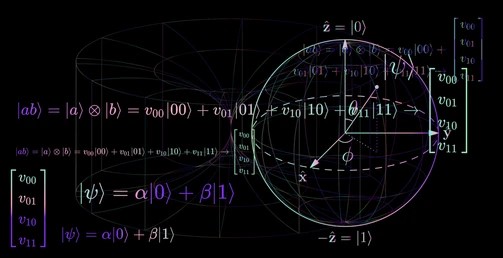
Recent breakthroughs challenge the conventional wisdom that solid-state qubits require an ultra-dilute and pristine environment for extended lifetimes. A groundbreaking study, featured in Nature Physics, reveals that densely packing rare-earth ions into a crystal can give rise to pairs functioning as highly coherent qubits.
Designing for Quantum Success: Clean Lines to Crowded Spaces
In the domain of quantum computing, where design choices draw inspiration from clean lines and minimalism akin to interior design trends, the durability of quantum information in qubits, or ‘coherences,’ is crucial for practical quantum computing. While the prevailing belief stresses the significance of cleanliness to prevent information loss through decoherence, a new study by researchers at the Paul Scherrer Institute PSI, ETH Zurich, and EPFL challenges this by demonstrating that qubits can thrive in a crowded environment.
Gabriel Aeppli’s Vision: Squeezing Qubits Closer Together
Gabriel Aeppli, head of the Photon Science Division at PSI and professor at ETH Zurich and EPFL, leading the study, notes, “In the long run, how to make it onto a chip is a question that’s universally discussed for all types of qubits. Instead of diluting more and more, we’ve demonstrated a new pathway by which we can squeeze qubits closer together.”
Crafting Qubits from Rare-Earth Metal Terbium
The researchers utilised rare-earth metal terbium to craft solid-state qubits integrated into yttrium lithium fluoride crystals. Contrary to expectations, they found that within a densely packed crystal, certain qubits exhibited significantly longer coherences.
Markus Müller’s Unconventional Strategy: Picking Gems from the Junk
Markus Müller, providing theoretical insights, explains the unconventional approach: “For a given density of qubits, we show that it’s a much more effective strategy to throw in the rare-earth ions and pick the gems from the junk, rather than trying to separate the individual ions from each other by dilution.”
The Power of Qubit Pairs: Shielded from Chaos
The success lies in forming qubits from strongly interacting pairs of ions, as opposed to single ions. These pairs, relying on superpositions of different electron shell states, exhibit physical properties that shield them from the chaotic environment. The entangled state of the pairs at a different energy level prevents them from exchanging energy with single ions, making them immune to disturbances.
Microwave Spectroscopy Revelations
The researchers stumbled upon this phenomenon while investigating terbium-doped yttrium lithium fluoride using microwave spectroscopy. These qubits are expected to operate at higher frequencies of optical laser light, potentially finding applications in quantum information processing using X-ray light.
Adrian Beckert’s Distinctive Insight: Entangled States for Stability
Adrian Beckert, lead author of the study, highlights the distinction, “If you make an excitation on a single terbium, it can easily hop over to another terbium, causing decoherence. However, if the excitation is on a terbium pair, its state is entangled, so it lives at a different energy and cannot hop over to the single terbiums.”
Aeppli’s Optimism and Future Prospects
Aeppli expresses optimism about the future applications, stating, “With the right material, the coherence could be even longer.” The team plans to optimize the matrix further based on their newfound understanding of the protective mechanisms surrounding these qubits. This innovative approach challenges preconceived notions, opening new possibilities for the future of quantum computing. Note: Quantum Computing Ireland was not involved in this study.
Mark Kelly’s insight
“As the forward-thinking founder of Quantum Computing Ireland, I’m excited by the groundbreaking insights uncovered in this study. This revolutionary breakthrough challenges conventional quantum computing norms, showcasing the immense potential of quantum technologies in unconventional settings. At Quantum Computing Ireland, we are dedicated to pushing the boundaries of possibility, exploring uncharted territories, and leading the way into a quantum-powered future. This research not only reshapes our understanding of qubits but underscores our commitment to advancing quantum technologies that will revolutionize the realm of computing and information processing.” – Mark Kelly, Founder, Quantum Computing Ireland
